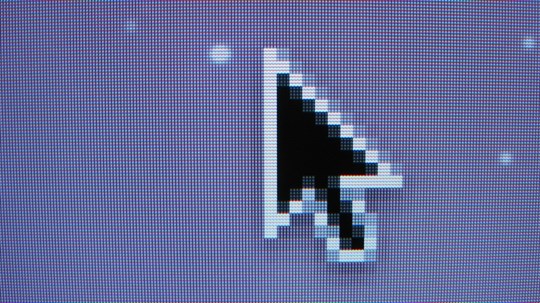In the Psalms and Proverbs, the idea that you become like that which you love is important.

jeffreywarren / Flickr
Careful What You Click For
Christianity Today | 26 September 2014
A call to steward our page views well.
My grandmother spends
most of her days watching the cable news network that represents the
point of view most directly opposed to her own.
“Wait,” I said to my dad, “she watches which channel all day?”
“You heard me right,” he said. “She watches it so that she can complain about how stupid they all are.”
I’m not sure what effect she thinks she’s having by talking back to
television programs she disagrees with. It’s easy to shake my head in
pity at this foolishness, until I consider what some of my own behavior
has in common with hers – only, in a way, mine is worse.
When I click on links I know are trashy, or links I know I’m going to
disagree with, I’m casting a vote for more of the same. Chances are, you
are too.
It happens when I’m nearing the end of some perfectly worthwhile
article, and, there, near the bottom, I’m invited to click on an array
of shamelessly pandering links. Some are patently absurd or
inappropriate. Others incite my curiosity just enough to make me click: What hidden secrets have I been missing in all those animated movies? Nearly all are a waste of time.
This dynamic takes a different form when some hotly debated political matter, evangelical controversy, celebrity death, or some combination thereof happens to be trending. One headline becomes more sensational than the next; tweets are fired fast and furiously; and people are linking and clicking like crazy, even if only to remark upon how stupid it is that whatever topic is trending. Amid the noise and chatter, the person with the loudest voice, not necessarily the one with the most compelling things to say, ends up getting the most attention.
Because online advertisements are sold by the click or by the number of
page views, there’s tremendous incentive for headlines to be what
editors sometimes call “clicky” and what’s (somewhat pejoratively)
referred to as “click bait.” Be shocking, promise a benefit to the
reader, arouse strong emotions: these are the secrets of good click
bait.
In a recent TED talk, the media commentator Sally Kohn noted that we live in a world where “what gets the most clicks wins.”
“There’s all these hidden algorithms,” Kohn explains, that help show
you more stuff that’s like what you just clicked on or searched for,
that also end up showing all of us more of what most of us are clicking
on and searching for. No longer are editorial decisions made by solely
by a select few; we are all, in a sense, editors of the Internet. What
we click on is what we all get more of – even if it is stuff that most
of us would say we disdain.
Kohn finishes by challenging her audience to “click responsibly” because “clicking is a public act.”
Kohn’s talk reminded me of a woefully undershared article
of several years ago, by Jenell Paris, who teaches anthropology at
Messiah College in Grantham, Pennsylvania. In it, she makes a case for
ignoring “Christian sexists.” Don’t respond at all, she suggests, to the
latest foolish antics of Mark Driscoll. Starve them of pageviews,
withhold clicks and Facebook likes and shares, and they just might stop.
(Is it wrong of me to note here that when we were training our dog,
rule #1 was to never pay her any attention when she was doing something
“bad”?)
The power and influence that leaders and other public figures have
derives from the attention we consent to give them. Likewise crassness,
sensationalism, and trash on the web comes to us at least in part
because that’s what most of us are, on some level at least, interested
in, and our interests make the Internet what it is. Our tweeting,
sharing, and, yes, even our clicking, are tiny but profoundly
significant acts of culture-making.
In the Psalms and Proverbs, the idea that you become like that which
you love is important. Two ways – the way of wisdom, and the way of
folly – are constantly juxtaposed. Foolishness may be sweet for a
moment, but it quickly turns to gravel in the mouth. It may be fun for a
time, but it leads ultimately to death. By contrast, wisdom, which is
found in God’s word, leads eventually to fruitfulness, joy, and life.
Words, we are reminded throughout Scripture, have world-making power.
That’s true in real life and online. My grandmother, talking back to her
cable news, doesn’t do a thing to make the world any different (except,
I suppose, by incrementally increasing the market share of the news
corporation she despises), but my choice to indulge, or not, in the
latest bit of gossip or controversy does. How we click is a matter of
Christian digital citizenship. Click, therefore, on the things that are good.


No comments:
Post a Comment